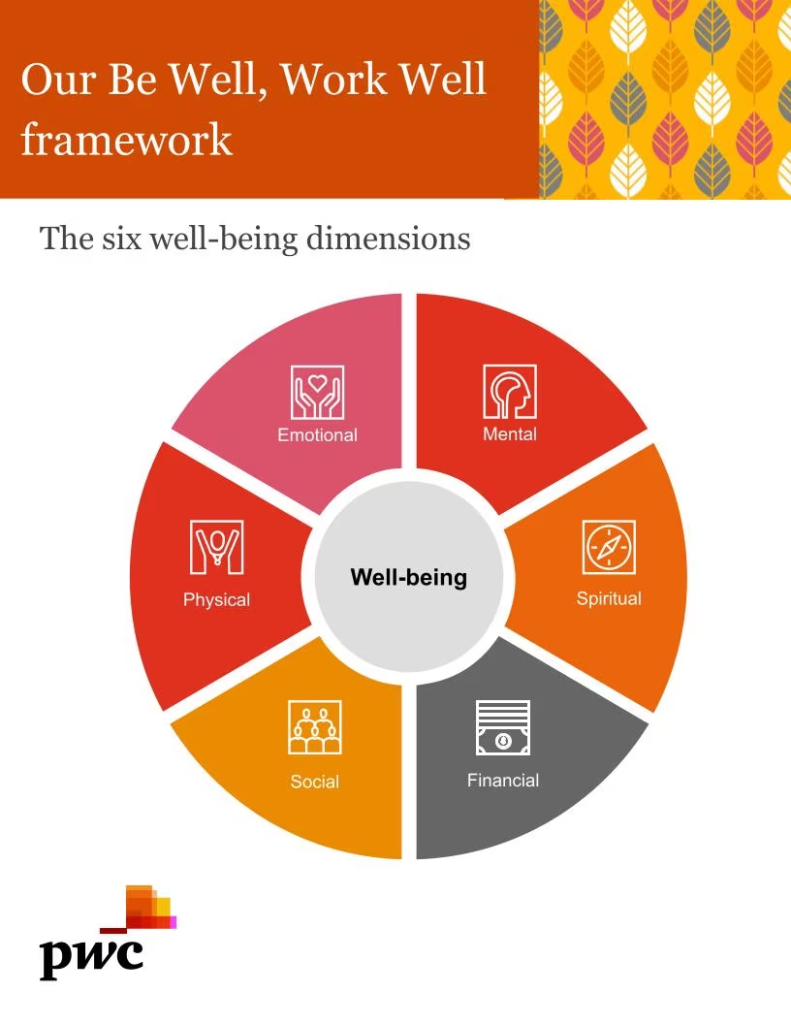In the modern hustle of daily business life, we sometimes get stuck in this never-ending cycle of activity and well, just being busy, which can take a toll on our health and happiness.
For HR managers and business owners, the challenge is clear, creating environments that not only foster productivity but also safeguard the wellbeing of their most valuable asset — their employees.
In this blog, we’ll share our top recommendations for enhancing workplace wellbeing and creating a positive and supportive work culture.
The Essence of Wellbeing in the Workplace
Wellness and wellbeing programmes are no longer a ‘nice-to-have’ perk. They’re fast becoming a core component of any organisation aiming for sustainable growth and high performance.
From reducing absenteeism to boosting morale and creativity, the returns on investing in workplace wellbeing are not only human, they are financial. Here, we deep-dive into practical wellbeing tips designed to transform your workplace from stress-inducing to stress-relieving.
Physical Wellbeing Tips
The first pillar of workplace wellbeing is physical health, the foundation upon which the other dimensions are built.
Here are some actionable steps to ensure that your body is nurtured during your workday.
Ergonomic Workspaces
Investing in ergonomic workstations, chairs and keyboards ensures that your employees are not hunched over their desks for hours on end.
Ensure that your chair, desk, monitor and keyboard are correctly positioned to support proper posture and reduce the risk of eyestrain or repetitive stress injuries. Simple adjustments can make profound differences in your health and productivity. From our own experience, we know standing desks are a game changer!

Pause and Stretch Often
Encourage employees to take short breaks and stretch their muscles throughout the day. Sitting for prolonged periods can cause stiffness in muscles, leading to discomfort and pain.
Encourage standing or walking meetings and regular breaks from sitting to get the blood flowing and re-energise individuals.
Promote Healthy Eating Habits
Providing healthy snack options and promoting mindful eating habits can go a long way in improving employee wellbeing.
Encourage employees to take their lunch breaks away from their desks and offer nutritious food choices in the office if you can.
A well-nourished and well-hydrated body supports increased focus, energy and overall health.
Mental Wellbeing Tips
Mental wellbeing is intricately linked to job performance and satisfaction. Nurturing your mind is a top priority, and here’s how to do it effectively amidst your professional responsibilities.
Unearth Stress Management
Stress is an inevitable and natural part of life, but managing it is a skill that can be honed. Striking the balance of stress as a healthy stimulus which drives focus and motivation is key so that you can recognise when it becomes too much, preventing it from leading to fatigue, anxiety and even burnout.
Explore different strategies, from time management techniques to therapeutic exercises or hobbies. What matters is finding what works for you and embedding it into your daily routine.
The Practice of Mindfulness
Mindfulness is more than a buzzword, it’s a means to anchor yourself in the present moment and disengage from the chaos of the mind.
Dedicate a few minutes each day to mindfulness exercises or apps to recharge your mental batteries and enhance clarity and calm.

Construct a Work-Life Balance
The elusive work-life balance is more about harmony than an even split.
Prioritise activities outside of work that refresh and rejuvenate you. Creating set boundaries around your work hours and sticking to them is a powerful tool in your wellbeing arsenal.
If something outside of work is important enough and you can prioritise it accordingly (whether than be spending time with your family, friends or going to the gym) it becomes much easier to justify “protecting” the time you need to commit to it.
Social Wellbeing Tips
A supportive network and a healthy work environment are indispensable for overall job satisfaction. Make it a team effort to foster social connections at work.
Team Building
Team building isn’t just for beers or escape rooms, it’s about developing a cohesive and inclusive unit where every voice is valued.
Organise activities that strengthen relationships and encourage teamwork, which can lead to increased job satisfaction and a more motivated workforce.
Create an Open Channel of Communication
Communication is the lifeblood of any relationship, professional or personal.
Encourage open and honest conversations in the workplace to build trust and mitigate the potential for misunderstandings and conflicts.
Form a Supportive Ecosystem
From HR-led initiatives to informal support systems, create an environment where support is readily available for individuals navigating personal or professional challenges. Feeling supported can alleviate stress and boost morale significantly.
Case Studies in Workplace Wellbeing Excellence
Real-world examples provide not just an aspiration but attainable benchmarks for what is possible in workplace wellbeing.
The stories of Google and PwC serve as testaments to the direct benefits of workplace wellness programmes.
Google’s ‘Search Inside Yourself’ Programme

Google’s “Search Inside Yourself” programme, established in 2007, marked a pioneering step towards integrating mindfulness and emotional intelligence into the workplace.
Developed by one of Google’s earliest engineers, Chade-Meng Tan, the programme was designed to cultivate emotional intelligence, improve wellbeing, enhance teamwork, and leadership and increase overall productivity through scientifically proven methodology.
“The aim of SIY was to help people develop the skills of mindfulness, empathy, compassion, and overall emotional intelligence to create the conditions for individual and collective thriving.
SIYLI offers programs, tools and content on mindfulness-based emotional intelligence, empathy, compassion, resilience, leadership and more, which have a positive impact helping to promote sustainable well-being, motivation and high performance for individuals, teams and organisations”
The programme has received lots of praise for how it covers personal growth and professional success, inspiring organisations globally to follow suit.
Read more about it here.
PwC’s Be Well, Work Well Programme

PwC’s “Be Well, Work Well” approach is about forming everyday healthy habits that help fuel their six dimensions of wellbeing.
- Physical
- Emotional
- Mental
- Spiritual
- Financial
- Social
Each are proven drivers of performance, fulfilment and engagement.
The programme emphasises small changes in behaviour that lead to more significant, long-term results.
Read more about it here.
Turning Knowledge into Action
Understanding and awareness are the first steps; action is where change truly begins. Here are some actionable steps for you to infuse wellbeing into your daily work lives.
Evaluate and Adjust
Conduct an audit of your workspace, your habits and your routines. Identify areas that may be undermining your wellbeing and commit to change.
Schedule for Success
Put your breaks, exercise and social activities on your calendar. Treat them as non-negotiable appointments with yourself and your health.
Rally the Troops
Wellbeing is a team sport. Share this guide with colleagues and engage in discussions to discover shared challenges and solutions. Strength, after all, lies in numbers.
Be the Change Within Your Organisation
If you find your company’s wellbeing programmes lacking, be the advocate for change. Suggest new initiatives or improvements based on the insights and examples shared in this guide.
The road to workplace wellbeing is a personal and shared one, a continuous process of trial and adjustment.
By incorporating the strategies outlined in this blog, you can cultivate a workplace that values and enhances the holistic health of your employees.
